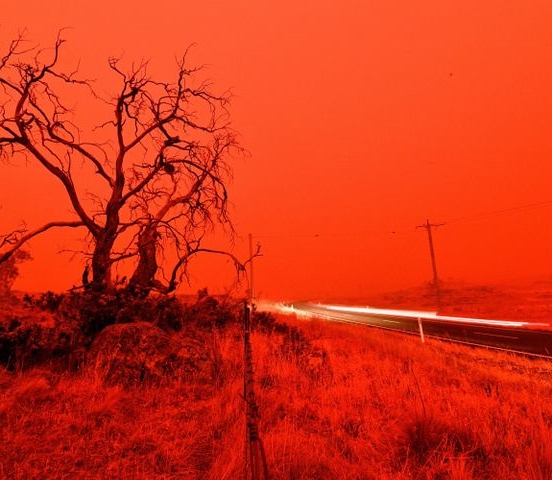|
Feel like you’re missing issues? Don’t forget to whitelist
CHandEBrief@gmmb.com.
Health
Unprecedented wildfires in Australia fueled by recent drought and high wind conditions have caused at least 27 deaths, set 18 million acres of land ablaze and continue to blanket swaths of the country in a hazardous smoke. (CNN, The New York Times)
The United States is among the top 10 countries for pollution-related fatalities, with data collected in 2017 revealing that 15% of premature deaths in the U.S. were linked to air pollution. (The Guardian)
A new study found that exposure to fine particulate matter from ambient air pollution is linked to poor bone health and the development of osteoporosis. (Global Health News Wire)
A new report found that record temperatures in England last summer had significant health impacts, including nearly 900 deaths resulting from just two heatwaves. (The Guardian)
According to a new study, melting permafrost in the Artic is leaking toxins like mercury in the ocean and threatening the global food supply. (Vox)
Equity
In the midst of current wildfires, Australia’s indigenous people are reliving their grief from 2018 when bushfires destroyed ancient rock art which were treasured as records of global human history. (The Sydney Morning Herald)
The NAACP is urging state and local chapters to decline donations from utility companies who build polluting power plants in predominantly minority neighborhoods, which put locals at greater risk of asthma and hinder their ability to adapt to climate change. (The New York Times)
Climate change is increasing the rate of extreme weather events and creating thousands of refugees in the Caribbean despite the region contributing less than one percent to global carbon dioxide emissions. (Grist)
Politics & Economy
Australian Prime Minister Scott Morrison continues to downplay the link between climate change and current wildfires, dismissing calls to limit greenhouse gas emissions and defending the country’s coal exporting industry. (Vox)
News Corp, Australia’s largest media company—led by Rupert Murdoch—is under fire for spreading misinformation about the country’s wildfires by exaggerating the role of arson and arguing that current blazes are no worse than those of previous years. (The New York Times)
A new plan from the Trump administration would weaken environmental laws that require federal agencies to take climate impacts into account when planning infrastructure projects. (The New York Times)
Progress
A recent analysis revealed that more than 26,000 lives were saved in the U.S. after a shift away from coal between 2005 and 2016 reduced pollution in communities near coal facilities. (The Guardian)
According to a new study, recent reductions in U.S. coal consumption led to a 2.1% decline in U.S. greenhouse gas emissions in 2019. (The Washington Post)
Action
A panel of 41 EPA scientists have criticized rollbacks on environmental regulations proposed by the Trump administration, arguing that they contradict established science. (The New York Times)
Kicker
Learn how you can help the victims of Australia’s fires here. |

